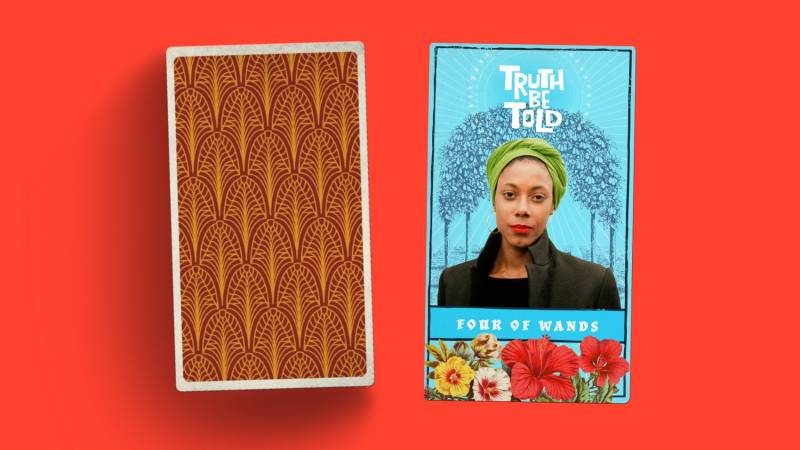
How do we fight an enemy like COVID-19 without the power of physical connection — the very force that has bolstered us through tough times in the past? That is the question we are unpacking in this week's episode, prompted by our very own host, Tonya Mosley.
“Colonialism always works by separating and displacing people of color. My hometown of Detroit is the American manifestation of this — economic divestment over decades has left it vulnerable and bare, bore the brunt of something like a pandemic. When I was a kid, I’d tell anybody who asked me that I was going to move far away and explore the world. And I did. ... But now, as I watch how COVID-19 has ravaged places like Detroit — I am aware that I am also vulnerable because I am isolated from my people — and the very superpowers of connection and community that allowed our ancestors to survive past atrocities.”
Tonya talks with two hometown friends, Sarah Davis and Kelly Anglin-Poindexter. Anglin-Poindexter now lives in Houston, Texas, and Davis lives in Austin, Texas. They got on a three-way call to talk about the heartache they feel being so far away while many of their Detroit neighbors, schoolmates and church friends are dying of COVID-19.
Tonya: Do you guys miss home? Do you miss Detroit?
Sarah: I’m just missing the Detroit that we knew when we were growing up. I absolutely miss my family and I do get extremely nostalgic when I go back home. But it's not for Detroit today. It's like for the Detroit that we knew and what Detroit could possibly be. I do see little sparks of potential. So, when I see that, I'm like, wow, that's like what Detroit could be maybe in another 10 years. So if you can miss something that's in the future, that's how I feel.
Tonya: That's kind of profound — miss what Detroit is soon to become. But I do feel really emotional about what's happening with COVID-19 and just the amount of people who are dying from it, the amount of people who are sick, the six degrees of separation.
Kelly: I had a really good friend who was in the hospital and on a ventilator for 45 days. And it was like every single day, I was either trying to reach out to her, her mom or husband, to find out what was going on. And I didn't realize how much stress that was causing me. And it was interesting that her mom called me one day and she just she started praying with me. Now, this is her daughter. And I was like, ‘I've got to put it together. I can't allow this anxiety to take over me. I have to be able to take care of my family, take care of my kids.’
Tonya: Yeah, I feel a tremendous amount of fear and also guilt. And I'm trying not to cry about it. My dream had always been like, I'll go away and establish myself and then come back to Detroit. And that just didn't happen. I just went away and I never came back. And a big part of that is because of opportunities in other places. So it's a twofold thing for me — feeling guilt for not being a part of the solution in Detroit. And all of it is exacerbated by this COVID-19 crisis that we're dealing with.
Our Wise One shares similar feelings. Sarah M. Broom is a writer and author of an award-winning book called “The Yellow House: A Memoir” about her childhood home in New Orleans East, Louisiana. The neighborhood was promising at the height of the space race as it became home to a major NASA plant.
Broom says a prized childhood memory of hers is remembering how her mother would fix the house up and make it smell good. “She still is this immense sort of sensual person, very interested in how things look and how food is presented. And also this incredible cook. There are times when she was making a bit what seemed like the simplest of dishes, sauerkraut and smoked sausage, but it was completely gourmet on the plate. And so just the memories of her sort of claiming this spot that was hers.”
Broom has always been interested in questions gnawing at identity and belonging. This interest led her to cartography and writing as a profession. She says, through her writing, she tries to fill in the “blank spaces on the map, to redraw a map that includes those neighborhoods and streets and cities whose people are not deemed to matter, whose voices do not make it into the official recording. Those made to play supporting when they are, in fact, the lead.”